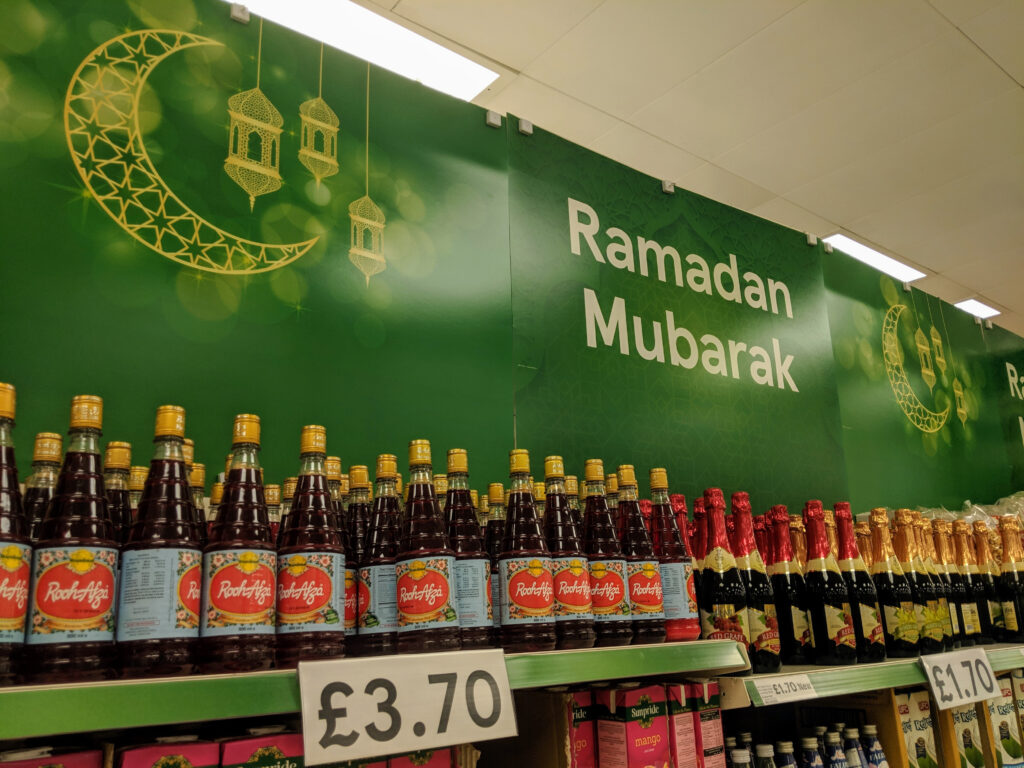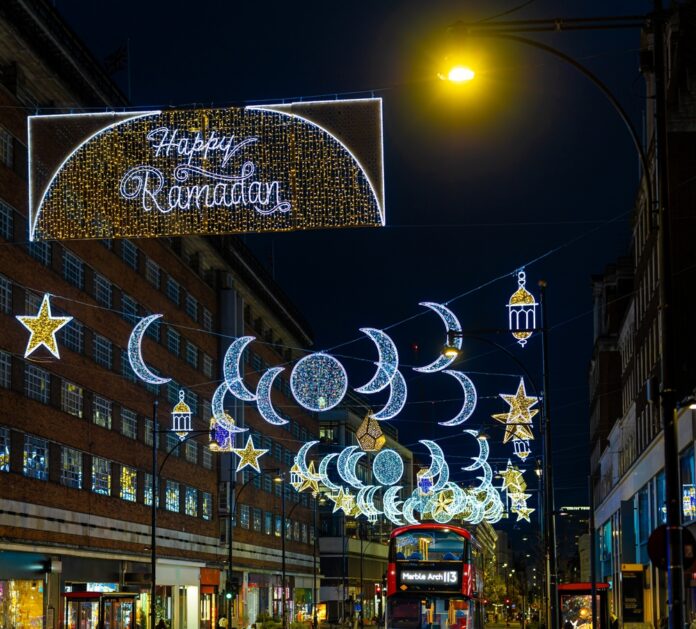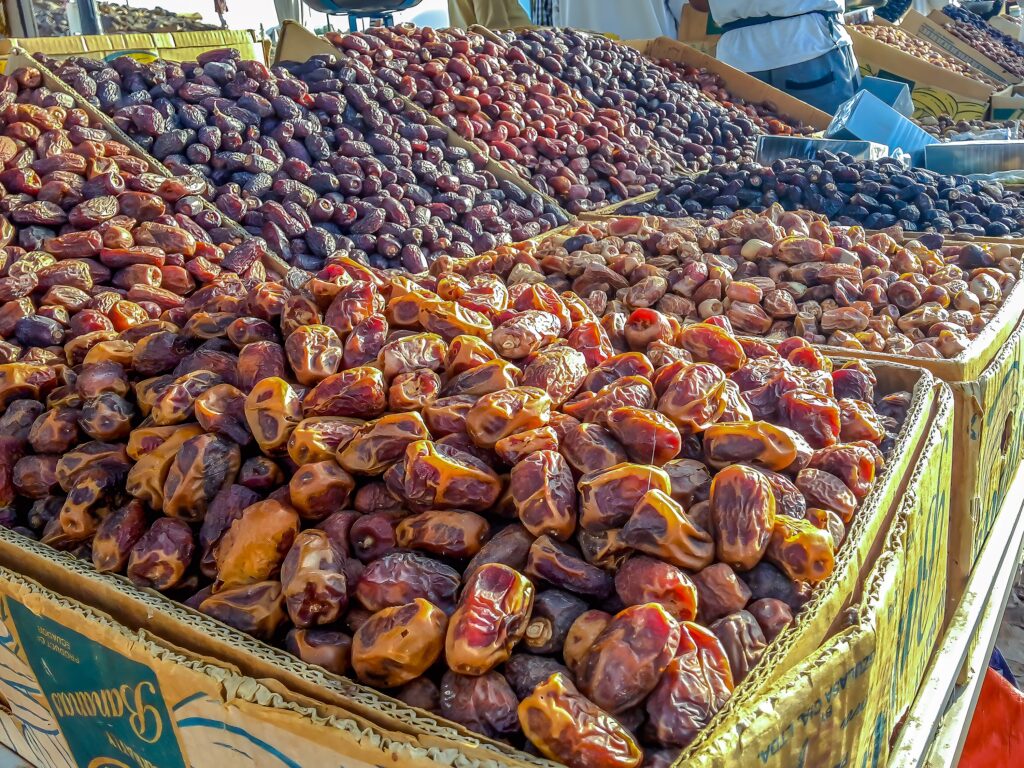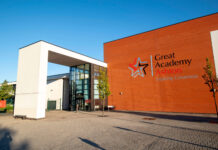Ramadan contributes an estimated £800 million to £1.3 billion annually to the UK economy, a report by the think tank Equi has stated.
The report, authored by Dr Mamnun Khan, highlights the profound economic and social impact of Ramadan, driven by Britain’s 2.6 million fasting Muslims — approximately 4% of the UK population.
Far from being a solely spiritual observance, Ramadan is emerging as a significant economic and cultural force, reshaping retail trends, fostering social cohesion, and inspiring charitable giving across the nation.
The report says the Ramadan economy is driven by four key pillars: retail spending, marketing investments, business value-chain enhancements and charitable contributions.
Consumer retail spending
Consumer retail spending — encompassing food, clothing, gifts and travel — accounts for £428 million to £642 million, with supermarkets seeing sales of £228 million to £342 million during the month.
This represents a two to threefold increase over the past decade, fuelled by a growing Muslim population, rising socio-economic mobility, and evolving consumer preferences among younger Muslims.
Subscribe to our newsletter and stay updated on the latest news and updates from around the Muslim world!

The Ramadan economy is no longer a niche market but a major retail moment.
Major supermarkets like Tesco, Morrisons and Sainsbury’s have launched innovative campaigns to engage Muslim consumers. Tesco’s 2022 “Together this Ramadan” billboard campaign and Morrisons’ “Ramadan essentials” box exemplify how brands are creating culturally resonant experiences.
Sainsbury’s, after a focused 2024 Ramadan campaign, reported a 21% sales increase, underscoring the rewards of such efforts.
Clothing retailers like H&M and Asos have also joined the trend, launching modest fashion collections for Ramadan and Eid in 2025, while IKEA introduced its first Ramadan-themed home collection, GOKVÄLLÄ, featuring décor and utensils tailored for iftar and suhur.
Charitable giving and social cohesion
The report estimates that the month drives £238 million to £359 million in charitable contributions, including donations, volunteering, and social cohesion activities.
Mosques play a central role, serving approximately 3.8 million free iftar meals — around 125,000 daily — worth £15 million.
Funded by donations, these meals support local economies by sourcing supplies from nearby businesses. East London Mosque alone provides 1,000-1,200 meals daily, exemplifying this communal generosity.
Public iftar events, such as the Ramadan Tent Project’s “Open Iftar” and interfaith gatherings, further enhance social cohesion. Over 300 large-scale iftars transform public spaces into hubs of dialogue and unity, welcoming people of all backgrounds.
Charitable giving also spikes, with donations to Muslim charities estimated at £200 million to £300 million, a significant increase from £145 million to £152 million in 2022, driven by digital campaigns and global humanitarian needs, such as the crisis in Gaza.
Policy recommendations
The report calls for government and businesses to harness Ramadan’s potential fully. For policymakers, recommendations include integrating the Ramadan economy into national strategies, supporting Muslim-led businesses through procurement, and issuing guidance on workplace adjustments for fasting employees.
The Department for Business and Trade and HM Treasury are urged to fund research into Ramadan-specific economic trends, while the Ministry of Housing, Communities and Local Government should ensure year-round engagement with Muslim communities to avoid tokenism.
For businesses, the report advises investing in culturally relevant marketing, positioning Ramadan as a key retail moment with tailored promotions, and championing sustainable products that appeal to younger, eco-conscious Muslims.
Partnerships with Muslim-owned businesses and the promotion of ethical goods could further amplify economic benefits.
Dr. Khan concludes that Ramadan is an “under-appreciated phenomenon” with untapped potential to strengthen local supply chains, boost small businesses and promote sustainable habits.
He emphasises that supporting the Ramadan economy is both an economic imperative and a step toward a more cohesive society.
“By recognising and supporting the diverse needs and contributions of the Muslim community,” the report states “policymakers, businesses, and public institutions can harness the full potential of Ramadan to promote inclusivity, well-being, and prosperity for all.”























